About us
Our Work
“We stand for asylum decisions based on evidence”
Asylos is an international network of over 60 volunteers in 25 countries who provide high-quality Country of Origin Information (COI) research for people claiming asylum and their representatives around the world. Our expertise is in Country of Origin Information research.
Country of Origin Information (COI) is essential to corroborate the testimony of individuals fleeing persecution, and may help determine whether a person is recognised as a refugee in need of protection. COI is information pertaining to circumstances in the country of origin of people seeking asylum or the credibility of an individual’s story, playing a vital role in ensuring fair asylum decisions for individuals, as well as policies that are grounded in reliable information. By producing high quality COI, Asylos supports asylum decision-making that is based on evidence.
Hear the story of asylum seekers like Aynoor from Pakistan or Lamiah from Afghanistan, and from lawyers who have used our services around the world.
“I can’t say enough how much I appreciate your project… it seems like you’re working with the best researchers and experts in the field. This information is invaluable.”
Nimrod Avigal, HIAS Israel
Our vision
Our vision is a world in which all asylum decisions are based on fair process and accurate information.
Our Mission
At Asylos, we believe that every asylum seeker deserves a fair opportunity to claim their right to protection. Evidence to prove persecution or to support the credibility of individual testimony is a vital element in the decisions taken to grant or withhold asylum. But many refugees and their legal representatives cannot access necessary information. To redress this imbalance and protect the right to asylum, Asylos works towards the following mission:
 |
Access to information Country of Origin Information (COI) is accessible to all who need it. People seeking asylum and their legal counsel have access to relevant, timely and high-quality information to substantiate their claims. |
 |
Use of information The asylum procedure is always evidence-based. Relevant, timely and high-quality Country of Origin Information is considered in every asylum decision. |
 |
Absence of prejudice The asylum procedure is always unbiased. Processes involving people seeking asylum are conducted in a fair and impartial manner, with no room for assumptions or preconceptions. |
 |
Societal Awareness There is broad recognition within host societies of the importance of high-quality COI in the asylum procedure. |
Our Services
Asylos provides services free of charge to lawyers and NGO caseworkers around the world who are assisting asylum seekers through their legal procedures. We produce case-based and broader Country of Origin Information (COI) research reports, used to support a variety of protection-based claims in court.
Contact us if you have any specific needs/have spotted any gap in COI research info@asylos.org
Subscribe to our Research newsletter to receive updates on all research produced.
 |
Bespoke Research for your Client Quality COI research can be vital evidence in an asylum application, especially where other evidence of an individual’s circumstances is not available. We provide individualised reports on specific human rights situations in refugee countries of origin to lawyers and NGOs in any country of arrival to help them represent their clients. |
 |
Thematic Research to Address Information Gaps We produce detailed thematic research reports for groups of vulnerable persons seeking asylum, including original interview material and published information, to shed light on the circumstances that these individuals may have faced in their home countries. Lawyers, NGOs and decision-makers can use this research to better understand the context from which persons seeking asylum have fled. Our past thematic reports have covered topics such as the situation of Stateless Palestinians in Lebanon, Children and Young people with Disabilities in Nigeria and Trafficked Boys and Young Men from Albania. |
 |
Spotlight Research We compile collections of relevant research about fast-changing situations of particular urgency and update these regularly when there is a need. For example, we have compiled, and regularly updated, research Repository about Afghanistan and a Repository about Stateless Individuals and those at risk of Statelessness from Ukraine. |
 |
Country of Origin Information (COI) research training We run COI free research training webinars and develop training handbooks for lawyers and NGO representatives on the fundamentals of COI research, child-specific COI research and disability-specific COI research. In addition, we recruit and train about a dozen new volunteer COI researchers each year. |
 |
Commentaries on Government-Produced COI Research We publish a range of commentaries on COI research produced by governments and intergovernmental organisations. These commentaries highlight methodological shortcomings and include suggestions for additional COI and an analysis of inconsistencies between COI presented and policy guidance for asylum decision makers. We encourage lawyers and NGOs to make use of our commentaries to inform their clients’ asylum appeal procedures. |
Our Impact
Asylos was established in 2010. Since then, our network of highly-skilled volunteer researchers has produced more than 750 Country of Origin Information research reports, assisting thousands of refugees claim their right to protection. Our research reports cover 110 countries and regularly help refugees to be granted asylum. 90% of lawyers who gave feedback on the COI research report they requested said that it provided them with information they did not already have.
Our research has been:
- used by the UNHCR to inform UN eligibility guidelines,
- submitted as evidence in the 2018 UK Country Guidance on Afghanistan,
- cited in the 2023 UK Supreme Court judgement, which declared that Rwanda is not a safe country to send people who are seeking safety, highlighting the importance of COI research, not only for fair and evidence-based asylum decisions in individual cases, but also for ensuring that asylum policies are grounded in thorough research,
- cited by the European Asylum Support Office (EASO, now EUAA), as well as several European government agencies and NGOs.
Our Founding Story
The decision to launch Asylos was made in early 2010 over lunch in a small Parisian restaurant. One of our founders had come to befriend and witness the dramatic story of a Kurdish refugee from Iran who had made a long and life-threatening journey to Belgium. After years of legal battle to obtain asylum, the refugee faced expulsion. Our founder offered his support to the refugees’ lawyer and together they decided that he would help research information for the case. A few hours of searching the internet for recent developments in Iran was all it took. The information he produced for the lawyer was more detailed and up-to-date than what the representative of the Belgian government could present. In particular, it highlighted that the situation regarding human rights in Iran had worsened in essential respects. On appeal, the judge overturned the expulsion order and granted the Kurdish refugee full asylum. For him, years of fear and agonising uncertainty came to an end. A few hours of work in front of a computer helped transform a life. This is how easy, how effective, and how deeply rewarding this type of research can be. At said lunch in Paris, our founder, together with two of his colleagues, devised a plan to found Asylos. The idea: matching one asylum case with one volunteer who conducts Country of Origin Information research, helping overburdened asylum lawyers and contributing to a more just and fair asylum system.
Our Partners
Cooperating with partners is an integral part of Asylos’ work. We partner with a variety of different organisations, institutions and law firms to ensure the highest standards of quality and functionality in our work. Have a look at who these partners are.
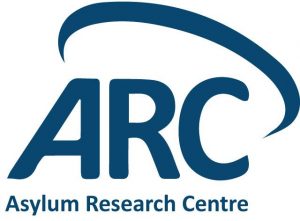 |
_749ed0cd-978e-4379-b082-a8aa36e0dcd9-300x155.jpg) |
(2)_71650132-0c5b-49ef-ba4c-c1ad84547aba.jpg) |
 |
 |
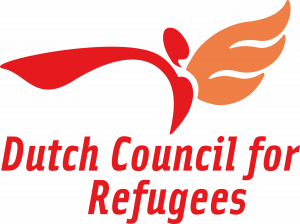 |
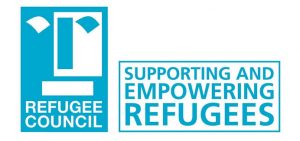 |
|
 |
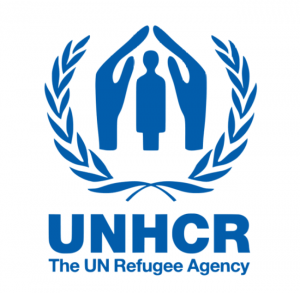 |
|
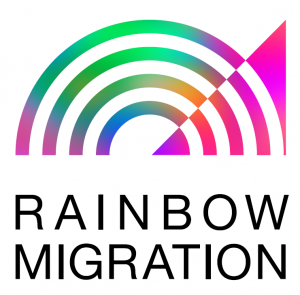 |

